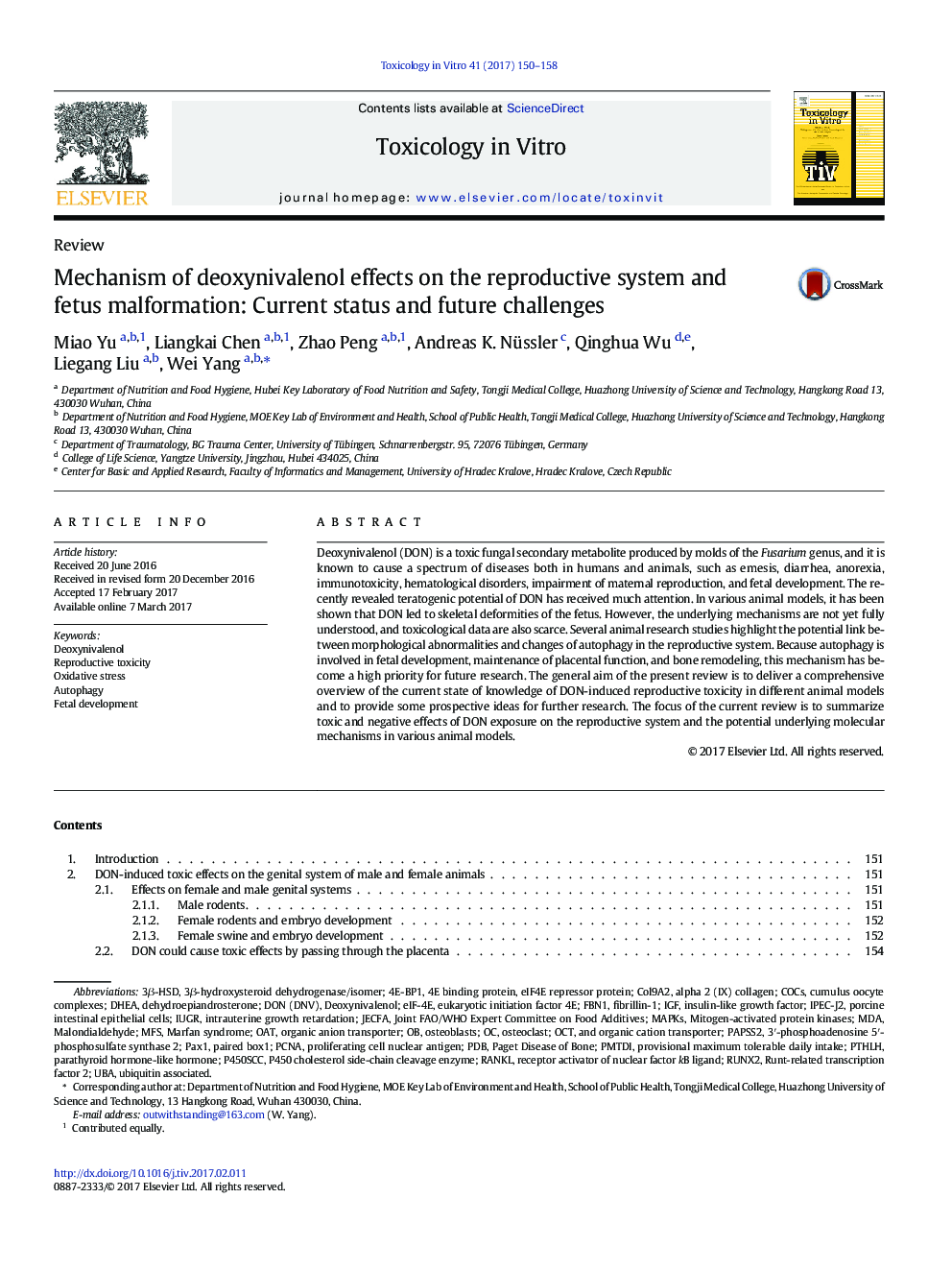| کد مقاله | کد نشریه | سال انتشار | مقاله انگلیسی | نسخه تمام متن |
|---|---|---|---|---|
| 5562681 | 1562704 | 2017 | 9 صفحه PDF | دانلود رایگان |
Deoxynivalenol (DON) is a toxic fungal secondary metabolite produced by molds of the Fusarium genus, and it is known to cause a spectrum of diseases both in humans and animals, such as emesis, diarrhea, anorexia, immunotoxicity, hematological disorders, impairment of maternal reproduction, and fetal development. The recently revealed teratogenic potential of DON has received much attention. In various animal models, it has been shown that DON led to skeletal deformities of the fetus. However, the underlying mechanisms are not yet fully understood, and toxicological data are also scarce. Several animal research studies highlight the potential link between morphological abnormalities and changes of autophagy in the reproductive system. Because autophagy is involved in fetal development, maintenance of placental function, and bone remodeling, this mechanism has become a high priority for future research. The general aim of the present review is to deliver a comprehensive overview of the current state of knowledge of DON-induced reproductive toxicity in different animal models and to provide some prospective ideas for further research. The focus of the current review is to summarize toxic and negative effects of DON exposure on the reproductive system and the potential underlying molecular mechanisms in various animal models.
Journal: Toxicology in Vitro - Volume 41, June 2017, Pages 150-158
